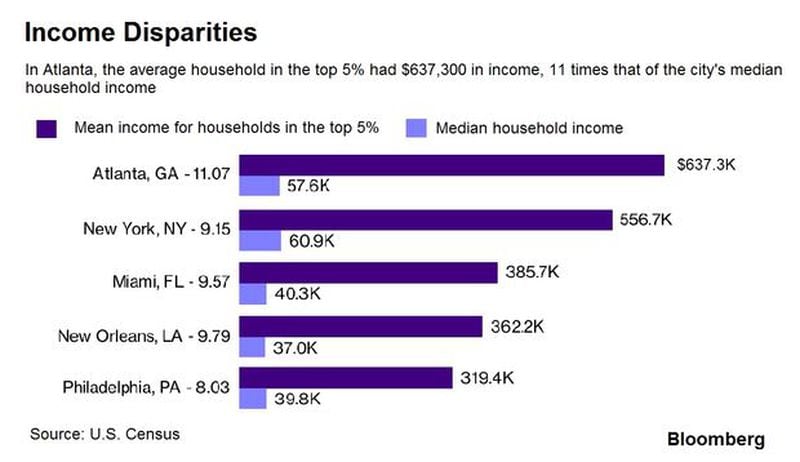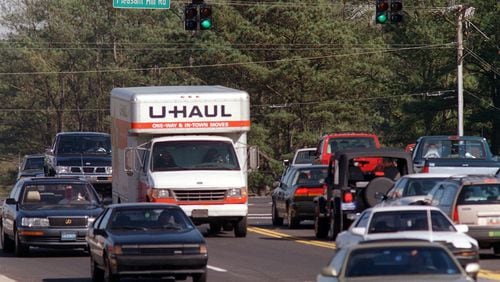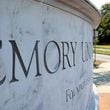A new Bloomberg analysis based on U.S. Census Bureau calculations and the distribution of household income ranks Atlanta the most unequal large city in the United States.
» RELATED: This is the poorest town in Georgia, income inequality analysis finds
Atlanta rose to the top spot in Bloomberg’s ranking for 2017, which includes 20 cities, after spending the past three years in second place, after New Orleans.
“The home of several Fortune 500 companies, including Delta Air Lines Inc. and Coca-Cola Co., the city boasts extreme wealth, with many executives earning top-dollar salaries,” Bloomberg reported. “At the same time, many individuals work low-paying jobs in the hospitality and retail sector. The city’s poverty rate sits at 24 percent − or nearly one in four people.”
» RELATED: This is how much you must earn to be in the top 1% in Georgia
According to the Census, about 18 percent of Atlanta households earn an annual income of $150,000 or more, compared to 9.3 percent of households making less than $10,000 per year.
To even be in the top 1 percent of Georgia earners, Georgians would have to make $345,876 annually, according to a recent report from the Economic Policy Institute.
» RELATED: In Atlanta, breaking poverty's cycle proves difficult
“Every city has some of these economic extremes. Atlanta just has them in spades,” Alan Berube, senior fellow and director of the Brookings Institution’s Metropolitan Policy Program, told Bloomberg. "At the high end, it looks like one of the most successful American cities, like a San Francisco or a New York or a Washington. But at its low end, one of America’s poor cities."
The city of Atlanta has had one of the highest income inequality rates for years, including between 2005 and 2009, according to a Census-backed analysis from the American Community Survey.
» RELATED: Rich Atlanta communities pull far ahead of the rest, report says
"Income inequality is one measure of societal conditions," ACS authors wrote. "Some have argued that the large (and recently increasing) income inequality is potentially harmful to social stability − letting 'the rich get richer while the poor get poorer' is thought to be bad for the United States
After 2000, the metro's economy suffered two major recessions, but while the more affluent communities recovered, many of the area's less affluent areas fell behind, Economic Innovation Group president John Lettieri told The Atlanta Journal-Constitution in July.
"They are living in a fundamentally different economy than the rest of us," he said. "Distressed communities have had a 15-year recession."
The Brookings Institute emphasized Atlanta’s widening income gap in its 2014 report, which found that “the ratio between the income of the wealthiest 5 percent of Atlanta households — those making $280,000 or more a year — and the bottom 20 percent — those making $14,850 or less — is significantly higher here than in any other American city, Brookings claims,” The AJC previously reported.
» RELATED: Being poor costs too much in Georgia, report says
Another project from researchers at Harvard University and University of California-Berkeley found that a child born poor in the Atlanta area is less likely to outgrow poverty than children in other big cities.
And even being poor in Atlanta — and Georgia at large — comes at a cost, AJC business reporter Michael Kanell wrote in 2016. In fact, according to a state labor department report, most of the state's households with annual incomes below $20,000 spend more than half of their income on rent, leaving little for infant and child care, which can cost between $7,600 to $14,100 annually.
"Research shows that the more isolated a poor neighborhood is — isolated by a lack of transportation options, isolated by racial segregation, isolated by social class, isolated by school attendance zones — the more likely poverty is to persist from generation to generation," AJC's Jay Bookman pointed out in a 2014 opinion piece, zeroing in on the powerful role of education in cities with high levels of income inequality. "The best catalyst for that change remains a strong teacher in a classroom, opening doors and opening minds, who is supported by a larger community that finds the status quo unacceptable."
» RELATED: Vaccines can save nearly 24 million people from poverty, researchers say
Massachusetts Institute of Technology professor Daron Acemoglu adds that cities can create new jobs and improve skill levels of workers to help income gaps over time.
“A lot of cities have been adversely affected because industries they specialize in have been hard hit by either automation, robots or globalization,” Acemoglu told Bloomberg. “That has had most of the negative affects on the lower-skill workers.”
More from the Bloomberg report:
While Atlanta ranked No. 1 on the list, Philadelphia came in at No. 3, jumping 17 places in just one year. In Philly, 8.2 percent of the population earns $150,000 or more, while 19.5 percent makes incomes at the bottom, according to analysts.
Here are the most unequal large cities in the U.S., according to Bloomberg:
- Atlanta
- New Orleans
- Philadelphia
- Miami
- New York
- Boston
- Tampa, Florida
- Houston
- Cincinnati
- Dallas
- Washington, D.C.
- Chicago
- Pittsburgh
- Memphis, Tennessee
- Los Angeles
- Tulsa, Oklahoma
- Baltimore
- Buffalo, New York
- Detroit
- Newark, New Jersey







